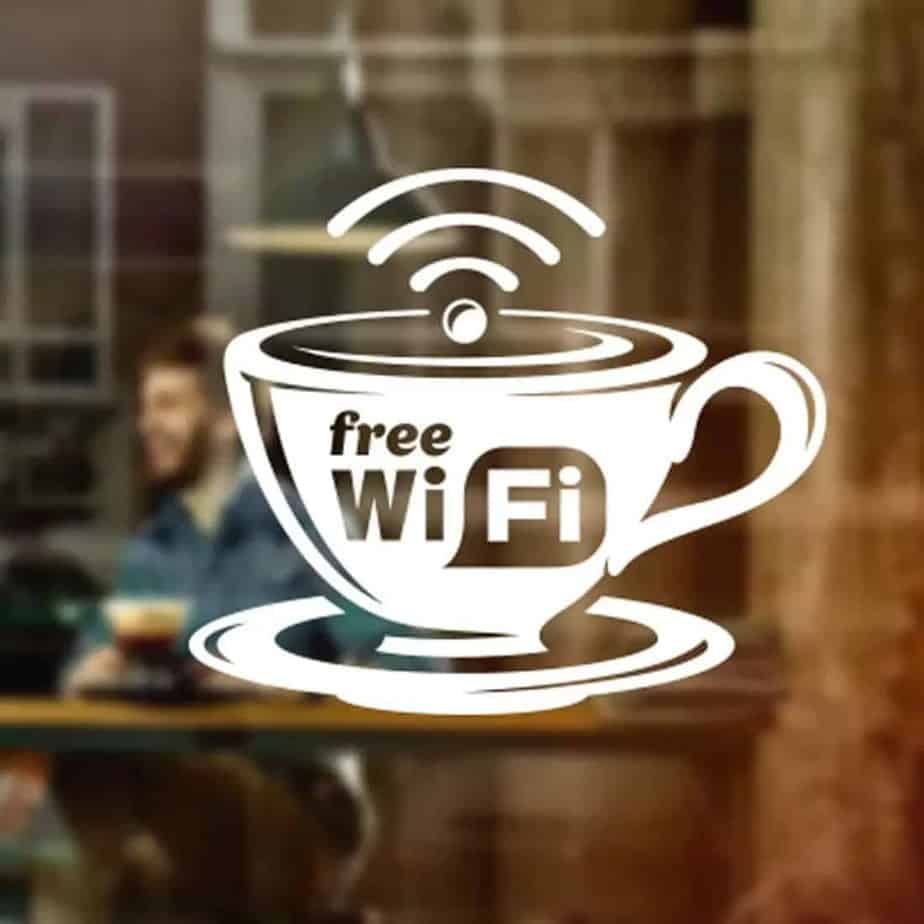
In an airport, a coffee shop, or possibly your hotel or conference room, you open your laptop. You sit down to work, choose the appropriate Wi-Fi network login, and then nothing happens. Your Wi-Fi indicator may indicate that it is connected, but no matter how hard you try, your browser says You are not connected to the internet. That popover login screen is always blank.
We’ve all been in that situation. We’ve wasted far more time than we’d like to confess attempting to go online as a remote team that has spent a lot of time working from coworking spaces and coffee shops. Although there isn’t a magic button to connect to coffee shop, hotel, or airport Wi-Fi network login , these hacks keep us connected the majority of the time.
1. Disable any third-party DNS servers.
DNS (Domain Name Servers) servers map domain names to IP addresses and allow web pages to be opened.
You can surf websites and do your work without changing the IP address (format 50.102.110.23). You must turn off your DNS server, whether it be OpenDNS or Google DNS, in order to gain better connectivity. You can access DNS settings and remove additional DNS servers by simply clicking on the network panel (if any).
2. Experiment With a Different Network Location
You don’t need to look for existing DNS servers if you’re using a Mac. You can gain access to the public wi-fi network simply by creating a new network location. The network settings are stored in different network locations.
As a result, while at home or at work, you must use a separate DNS to create a new network location. To add a new network location, open your System Preferences – Select Edit Locations from the network section – Click on the +” icon to add the new network location.
3. Go to the Default Page of the Router
If you haven’t been able to access the public wifi login page not showing up mac page in a long time, try accessing the router’s default page. Typing 127.1.1.1 or http://localhost in the URL is a quick way to load the router’s default page (uniform resource locator).It’s fine if you receive the default login page after that. Otherwise, look up your computer’s IP address and type it into your browser, replacing the last number with 1. If you experience troubles again, go to the network settings and check the TCP/IP tab.
3. Go to the Default Page of the Router
If you haven’t been able to access the public wifi login page not showing up iphone page in a long time, try accessing the router’s default page. Typing 127.1.1.1 or http://localhost in the URL is a quick way to load the router’s default page (uniform resource locator). It’s fine if you receive the default login page after that. Otherwise, look up your computer’s IP address and type it into your browser, replacing the last number with 1. If you experience troubles again, go to the network settings and check the TCP/IP tab.
4. Reboot Your Computer
Restarting the computer, laptop, or any other electronic device is one of the simplest ways to solve network problems.
The restart process can be used to fix the network problem in the following ways:
- Restart the computer, then turn off and on the wireless network.
- Restart the computer, clear the browser’s cache, and connect to the internet.
- Log out of your account, then log back in to test the connection.
5. Launch the Incognito Browser
Incognito window refers to a browser window that does not store any data or cache. This window avoids the need to clear the cache at different intervals. Browser cache is unquestionably a serious issue that prevents network connections from being established. After you’ve opened the incognito window. This website is not secure, yet it can be used without causing any issues. The advantage of visiting a non-HTTPS site is that the browser will not be redirected to the login screen. As a result, you can connect to the public Wi-Fi network login page while keeping your data safe.
6. Seek out a safe network
The majority of people have issues connecting to insecure wi-fi networks. Secured networks, unlike public and open networks, use particular encryption. If you type the password once and connect, your system will remember it and you will never have to type it again. As a result, always look for secure networks and browse at lightning speed.
Some Try and Tested Solutions
These are the following try and tested solution :
Restart your computer :
This workaround might be all that’s needed to fix the problem.What you should do is:
- Turn off your Wi-Fi and disconnect from the network.
- Shut down your computer after logging out of your user account.
- Restart the computer and log into your user account.
- Reconnect to the network by turning on your Wi-Fi.
- Check to see if the login page has appeared in your browser.
Switch To A Different Browser
If the problem persists after restarting your computer, the next best approach is to change your default browser to Microsoft Edge or Firefox. Maybe the prisoner portal will appear now.
These Are The Actions To Take
- Select Start from the Start menu (press the Windows logo key on your keyboard).
- In the search box, type ‘Control Panel.’ Best Match will display as an option. Select it by clicking on it.
- Under the ‘View-by’ drop-down, choose ‘Category.’
- Locate and click on the word ‘Programs.’
- Select Default Programs from the drop-down menu.
- Choose ‘Set your default programmes’ from the drop-down menu.
- Allow a few moments for the page to load.
- Select the browser you want to use and then click the ‘Set this programme as default’ option. Click the OK button.
You may reconnect to the Wi-Fi network at this time. Check to see if the login page appears in the new default browser. It’s worth noting that you might not need to make the new browser your default. Simply start it up and go to a website. It’s possible that the prisoner portal will appear.
Turn off pop-up blocking :
Pop-ups may be blocked in your browser to save data, speed up page loading, and prevent you from viewing unwanted adverts when you visit a website. This, however, may be preventing the public Wi-Fi login screen from showing. We’ll go over how to turn off pop-up blocking in Chrome, Microsoft Edge, and Firefox today.
Chrome :
- Start the browser and go to the top-right corner of the window to the three-dot icon.
- From the context menu, select Settings.
- To access further settings, scroll down to the bottom of the page and click the ‘Advanced’ drop-down.
- Scroll down to ‘Pop-ups and redirects’ under ‘Site settings.’
- Disable the option ‘Blocked (recommended)’ by clicking the slider on the right-hand side of the screen that opens.
- After that, it will convert to ‘Allowed.’ Restart your browser or close the Settings tab.
Microsoft Edge is a browser developed by Microsoft :
- Start the browser.
- In the top-right corner of the window, click the ‘More’ button (the horizontal ‘three-dot’ icon).
- On the left-hand side, select Settings, and then choose Privacy and Security.
- Under Security, look for ‘Block pop-ups.’
To turn it off, click the toggle. - Restart the browser or close the Settings tab.
Firefox:
- Start the browser.
- Select Menu from the drop-down menu (the horizontal three dots).
- Select Preferences > Content from the drop-down menu.
- Uncheck the option labelled “Block pop-up windows.”
- Restart the browser or close the Preferences tab. Make careful to turn off any third-party pop-up blocker on your PC once you’ve deactivated the option in your browser settings.
Reset the Network Connection:
This is what you must do.In the left corner of your taskbar, click the Wi-Fi icon. To disable Wi-Fi, go to the Wi-Fi tab.Return to the Wi-Fi network login icon and the Wi-Fi tab to re-enable the network connection.
Start your browser and go to www.google.com. It’s possible that the login page will now appear. Don’t worry if the problem persists after you’ve tried all four of the aforementioned solutions. It isn’t going to take long. Proceed to the next step in the process, which is listed below.
Conclusion
You can simply connect and open the public Wi-Fi network login page if you follow a few tips and tactics. If you have additional DNS servers connected, you should check your network settings and disconnect them.You should try to create a new network location after examining your DNS network settings. You can get to the login screen by typing local host in the browser or any non-https website in the incognito window. If these steps fail to resolve the problem, you should try restarting the computer. So, for a better, more smooth connection, opt for secured networks.
Check Also: MyAccountAccess Login | www myaccountaccess com | Enroll Elan Credit Card Login



